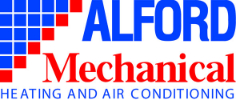What Is a SEER Rating, and How Does It Affect Your HVAC?
In Zebulon, North Carolina, long humid summers can keep your HVAC running hard to cool and dehumidify your home. If you think your energy bills are too high or you have concerns about cooling capacity, you may be considering the replacement of your unit. Read on to learn about SEER ratings to help make your choice.
What Does SEER Stand For?
SEER is an acronym for Seasonal Energy Efficiency Ratio. It’s a calculation of the average cooling output versus energy usage in a typical home. You can think of it similar to miles per gallon of fuel in your car. A 15-year-old truck is less efficient at using gasoline than a modern aerodynamic compact car. Similarly, an old HVAC unit will have a low SEER rating, probably around 8 or 9, and a new unit in the southeast will meet a minimum requirement of SEER 14 all the way up to 23.
Choosing the Right SEER for Your Home
Even though the range of SEER ratings is large, and you may be living with low SEER in an old unit right now, don’t necessarily assume that you should go to the opposite extreme and buy the highest number possible. Our professional HVAC installers can help recommend the right SEER value based on your square footage and budget for a replacement HVAC.
Properly-sized Units Save You Money
In fact, units that are oversized for the square footage may be too powerful and can cycle on and off frequently without completing their full cooling function. This causes unnecessary wear and tear on the parts and can lead to premature failures and repairs. Also, your unit will not cycle long enough to remove humidity. A careful analysis of your space is vital so that the unit can properly cool and heat according to the temperature you set on your thermostat with maximum efficiency.
We know it can be difficult to decide to replace your HVAC. We’re here to offer advice on the air conditioner with the right SEER rating for your home. Call us today at 919-246-5265.
Image provided by Shutterstock
You May Also Like

My Heat Pump in Spring Hope, NC Blows Cool in Heating Mode
A heat pump is designed to both heat and cool your home, but it sometimes blows cold air when it’s supposed to… Continue Reading My Heat Pump in Spring Hope, NC Blows Cool in Heating Mode…

Why Is My Boiler So Noisy in Zebulon, NC?
The boiler in your Zebulon, NC home works by heating water, then distributing either the hot water or steam through a system… Continue Reading Why Is My Boiler So Noisy in Zebulon, NC?…

4 Symptoms of a Faulty Furnace Limit Switch in Louisburg, NC
Your furnace’s limit switch is an essential piece of safety equipment. It’ll detect potentially hazardous situations and then shut off the furnace.… Continue Reading 4 Symptoms of a Faulty Furnace Limit Switch in Louisburg, NC…
